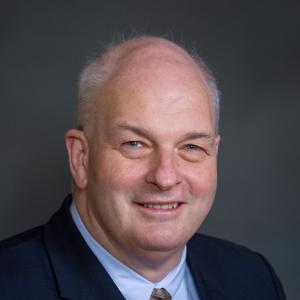Duke Health is growing its spine services through innovative research and adding new providers. “We want to be the leading comprehensive spine group in the Southeast and one of the leading groups in the country,” says spine surgeon Christopher I. Shaffrey, MD, chief of the Duke Spine Division, which combines the expertise of the departments of neurosurgery and orthopaedic surgery at Duke.
The new physicians complement the spine division’s breadth and depth with several experienced and well-known surgeons. “We’ve brought in people to facilitate engagement, access, and the ability to address simple to complex conditions across the Duke spectrum,” says Shaffrey.

- Olumide A. Danisa, MD, orthopaedic spine surgeon, minimally invasive and endoscopic surgery
- Anthony W. Hamm, DC, MS, chiropractor
- David Huie, MD, MS, spine neurosurgeon, minimally invasive and endoscopic surgery
- Kristen E. Jones, MD, spine neurosurgeon, image guidance and robotic surgery for complex deformity
- Douglas G. Orndorff, MD, orthopaedic spine surgeon, general spine deformity
- Peter G. Passias, MD, neurosurgeon and orthopaedic spine surgeon, complex surgery
- Parastou F. Quist, MD, neurosurgeon and orthopaedic spine surgeon
Enhancing and expanding offerings
The world’s second spine navigation unit recently came to Duke to improve instrumentation accuracy in endoscopic spine surgery. Spine tumor treatment, oncology, and osteofragility fractures are also leading areas of research. “Our surgeons are helping develop the latest and best treatments and technologies,” says Shaffrey.
The experienced physicians joining the staff add to treatments for complex spinal conditions, including awake spine surgery, severe scoliosis surgery, spine revision surgery, and chiropractic options. The new hires also increase access for patients, with more appointments in more locations throughout Durham and Wake counties.
The Duke Spine treatment path
Patients coming to Duke Spine don’t always start with surgery. “It’s very important that we engage people and look for the simplest treatment to take care of a substantial number of symptoms,” says Shaffrey. “This can help with optimization and insurance approvals, but more importantly, it gets patients healthier for surgery if it’s required.”
In this effort, the Duke Spine Health Program is adding more chiropractors and other nonoperative options for care. “Spine-related pain impacts patients’ quality of life,” Shaffrey says. “For a lot of people, chiropractic medicine makes them feel better quickly, and, as physicians, chiropractors can recognize if there’s something more serious going on, requiring additional treatment.
“Duke has been very forward thinking in bringing this group of capabilities together. The goal is to have any patient with any condition in the U.S. referable to Duke to have outstanding, cutting-edge treatment.”
